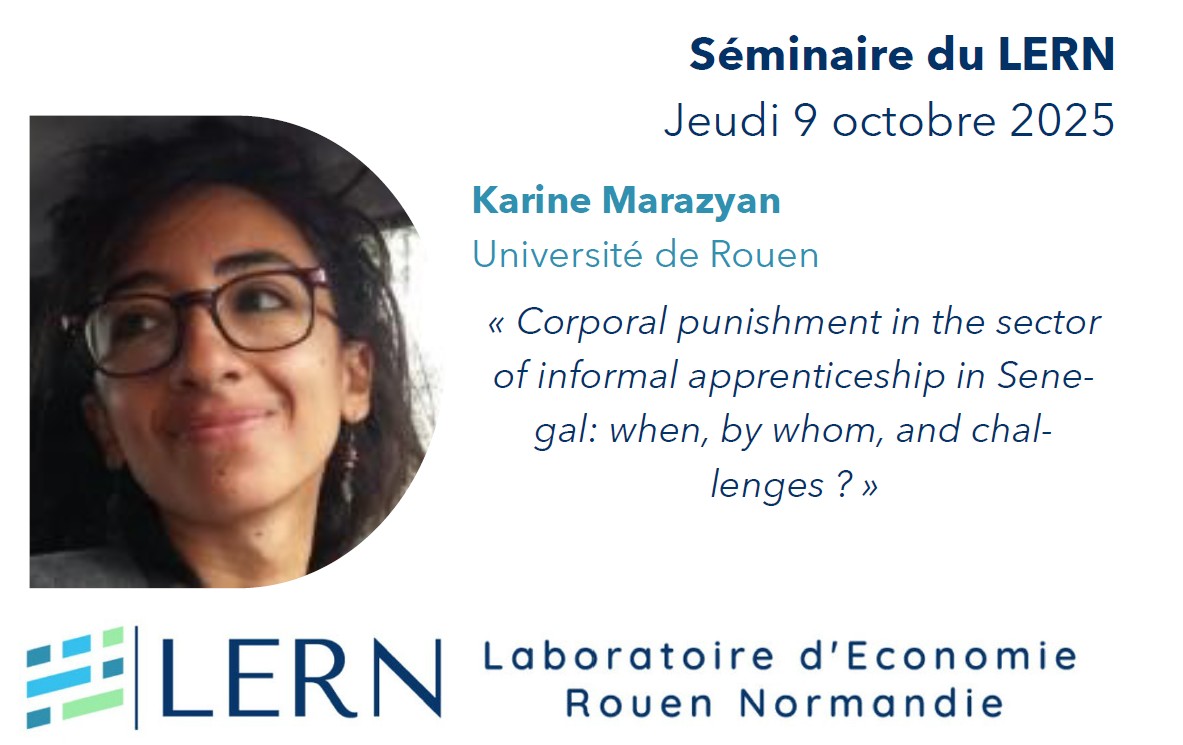📢 Séminaire interne du LERN – Jeudi 7 octobre à 12h
Jeudi prochain (le 7 octobre 2025), nous aurons le plaisir d’écouter Karine Marazyan qui présentera un article intitulé : « Corporal punishment in the sector of informal apprenticeship in Senegal: when, by whom, and challenges ? ».
Abstract : Informal apprenticeships are often considered a last-resort means for young people outside the formal education system to gain valuable labour market skills. However, the sector also appears to be characterised by high turnover and exit rates, calling into question its ability to provide quality training. This paper uses data from an original panel survey of masters and apprentices in the informal apprenticeship sector in Senegal to describe the apprentices’ learning environment. More specifically, it investigates the question of when and why masters use corporal punishment as a disciplinary measure and the associated challenges.

